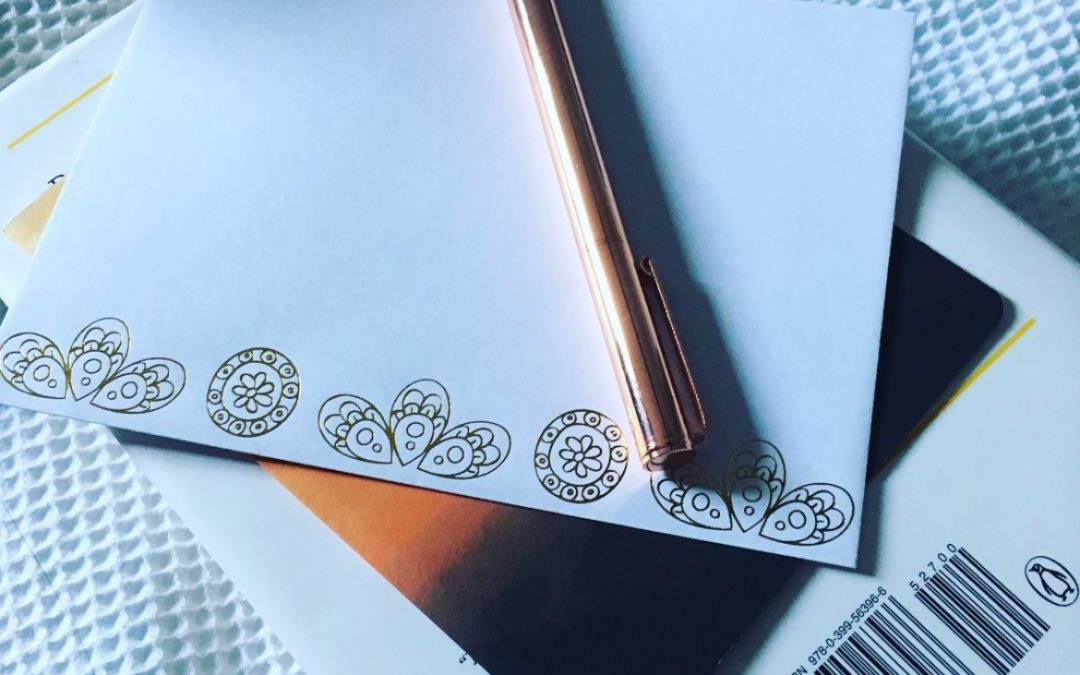Let us rise up and be thankful, for if we didn’t learn a lot today, at least we learned a little; and if we didn’t learn a little, at least we didn’t get sick; and if we got sick, at least we didn’t die. So, let us all be thankful. – Buddha
Not too long ago, I was gifted a gratitude journal for my birthday. At the time, I was in what you might call a rough spot – a chapter in my life when I felt the world was against me. I certainly wasn’t in the mood to be told I needed to be grateful. I remember thinking, grateful for what! I flicked through the blank pages and shook my head, thinking – really? What do I have to be grateful for? As far as I could see everything in my life was going wrong; I was unbelievably frustrated and ready to scream in the face of anyone who told me any different. Then, I thought about all the times my positivity to life had perhaps irritated those around me, especially those living with me. My ‘cup half full’ view of the world may have seemed naïve to those stuck ‘in the trenches of life,’ struggling to keep their heads above water. I started to wonder if all I had read about practising gratitude and its benefits were in fact true. Then I remembered, I had been here before. I first practised gratitude back in 2013, after a serious back injury. I had fallen into a depression, and journaling gratitude was the first step out of that black hole. Yet here I was over ten years later, amidst another challenging period of my life, finding myself sceptical of the idea that gratitude could help. It never ceases to amaze me how short our memories can be. It wasn’t long before I realised, this was in fact the perfect time to practice gratitude. I opened the pages, picked up my pen and started to write.
Gratitude rewires our brain for positivity and resilience. It encourages us to reframe our thoughts and focus on what we have instead of what we lack, lowering our stress levels. Practising daily gratitude, even if it’s just one thing, eventually becomes a habit: a way of being. And it feels good.
Here are some tips I have found useful, which you might too, when it comes to gratitude journaling:
Choose a journal.
If you prefer to hand-write, then I would highly recommend choosing a journal that reflects you and your inner creative. If, like me, you love an excuse to purchase some stationery, then this is your time! If not, then a digital journal will work just as well. Or perhaps voice notes are your preferred choice? Either way have some fun with it.
Create a routine that is realistic.
Don’t set yourself up for failure. If you’re not a morning person, do not attempt to force yourself to get up at 5am and scribble away in your journal. You will end up miserable, resentful and you won’t stick at it. Maybe you enjoy a soak in a hot bath at the end of the day and noting down your gratitude for the day would work for you then. Or make its the last thing you do in bed before you fall asleep. There is a lot of evidence to support the benefits of expressing gratitude right before sleep.
Keep it simple.
Make a note of 1-5 things you are grateful for each day. Choose what works for you. For me one each day is just right. If you’re having a terrible day and can’t think of anything to be grateful for – write down ‘I am alive.’
Get specific.
Instead of writing ‘it was a beautiful day,’ try ‘I enjoyed the warmth of the sun on my face as I walked along the canal.’ Being specific allows us to deepen our connection with our experiences and it’s more likely to have an impact on our overall wellbeing in the long term.
Use prompts.
Every now and then I love to select a guided journal with prompts, especially during periods when I feel stagnant. If I find myself lacking clarity or just generally lost, the prompts in a guided journal can help inspire and unlock various aspects of the mind, body, and soul. There are a lot of guided journals out there, so look out for one that aligns with you. For me, I like something simple. One-line prompts tend to suit me and ideally, they should focus more on purpose, meaning and matters of the heart and soul. These journals can serve as dual purpose by allowing thoughts of gratitude at the beginning or the end of each page.
Reflect.
For me, the most valuable part of any journaling is the opportunity for reflection. Even with a good memory, I still find recalling past events can be difficult. In our fast-paced world we often struggle to remember what happened last week, let alone last year! Regular journaling allows you to track progress (or lack of) and motivates change. It also helps to acknowledge and celebrate resilience during tough times.
Although it may sound cliché, there’s always something to be thankful for. Working with the dying, (and I will let you into a little secret, that’s all of us) and those in the throes of grief and bereavement, I find it almost impossible not to be thankful.
Every day is a gift, not promised to all.

Recent Comments